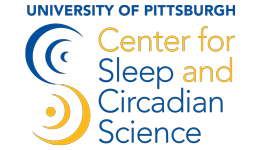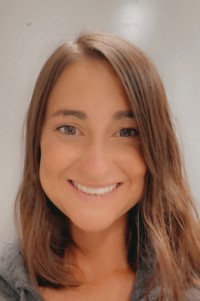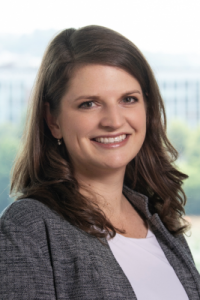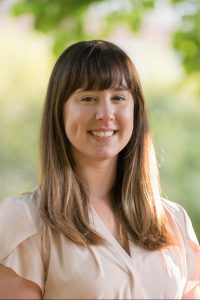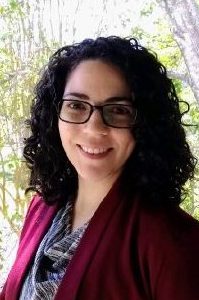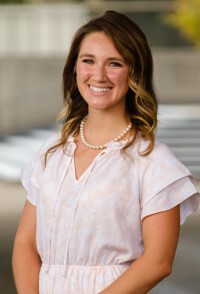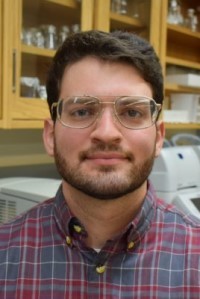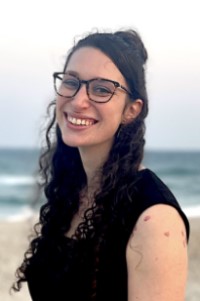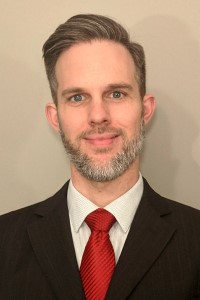Postdoctoral Trainees
Priya Borker, MD
Postdoctoral Scholar, , T32 Translational Research in Sleep Medicine
Pulmonary and Critical Care Medicine Fellow
MD, Medicine, Case Western Reserve School of Medicine (2014); Residency, Internal Medicine, Beth Israel Deaconess Medical Center (2017)
Mentors: Sanjay Patel, MD, Bernard Macatangay, MD
borkerpv@upmc.edu
Dr. Borker received her medical degree at Case Western Reserve University in 2014 with Honors and Distinction in Research. She trained at Beth Israel Deaconess Medical Center in Boston, Massachusetts for both her internal medicine residency and sleep medicine fellowship. She is currently completing her Pulmonary and Critical Care fellowship at the University of Pittsburgh Medical Center.
She is currently investigating the biological mechanisms by which sleep dysregulation predisposes to inflammation and cardiovascular disease in persons with chronic HIV infection, specifically investigating monocyte activation. Her long-term goal is to understand how sleep contributes to adverse health outcomes, particularly cardiovascular and chronic lung diseases and implement interventions to mitigate this risk.
Hannah Dollish, PhD
Postdoctoral Scholar, , T32 Translational Research Training in Sleep and Circadian Science
BS, Neuroscience and Slavic Studies, University of Pittsburgh (2016); PhD, Neuroscience, THe University of Arizona (2022)
Mentor: Colleen McClung, PhD
dollishh@upmc.edu
My interests are in understanding the cellular, molecular, and genetic mechanisms behind circadian and seasonal phase shifting in mammals and humans. I am also interested in melatonin’s dualistic role as a both a circadian and seasonal timer and as a potent antioxidant, particularly with regards to its antioxidant and rhythmic properties and roles in mitochondria.
Amy Hartman, PhD, OTR/L
Doctoral Candidate in the School of Health and Rehabilitation Sciences, University of Pittsburgh
Masters in Occupational Therapy, Xavier University
Mentor: Roxanna Bendixen, PhD
Agh38@pitt.edu
Amy is a 3rd year doctoral student and a trainee of the T32 Translational Research Training in Sleep Medicine program. She has 10 years of clinical experience as an occupational therapist and has worked with Dr. Roxanna Bendixen researching sleep in children with Duchenne Muscular Dystrophy. Amy’s personal research centers in sleep in children with Sensory Processing Disorder with a special interest in the underlying neurological components of sensory processing dysfunction that impact sleep health. Her long-term goal is to use her research to advocate for sleep intervention in special populations.
Madeline Scott, PhD
Postdoctoral Scholar, T32 Translational Research in Sleep Medicine (2021-2022)
PhD (Neurobiology), University of Alabama at Birmingham (UAB)
Mentors: Colleen McClung, phD
mrs215@pitt.edu
Madeline is a postdoctoral scholar in the T32 Translational Research Training in Sleep Medicine program. She received a PhD in Neurobiology at the University of Alabama at Birmingham (UAB), where she assessed how the cell’s degradation machinery was dysfunctional in the superior temporal gyrus of subjects with schizophrenia. She is continuing to study schizophrenia in Dr. McClung’s lab, where she now works on identifying differences in both 12 and 24 h transcript expression rhythms in the human prefrontal cortex associated with psychiatric illnesses.
Michelle Stepan, PhD
Postdoctoral Scholar, T32 Translational Research Training in Sleep Medicine
PhD, Psychology, Michigan State University (2019)
Mentors: Kristine Wilckens, PhD, Peter Franzen,PhD
stepanme@upmc.edu
Michelle is a postdoctoral scholar in the Translational Research Training in Sleep Medicine T32 program. She received her doctorate in Psychology from the Cognition and Cognitive Neuroscience program at Michigan State University. Michelle’s research broadly focuses on the role of sleep in cognitive and emotional processes. She uses experimental manipulations of sleep duration and sleep architecture to investigate how sleep affects processes such as cognitive control, attention, memory, and emotion regulation and how these processes relate to anxiety and mood disorders. She is also interested in behavioral and pharmacological interventions to improve dysfunction caused by poor sleep.
Eunjin Tracy, PhD
Postdoctoral Scholar, T32
PhD, Human Development and Family Studies, University of Wisconsin-Madison (2016)
Mentors: Daniel J. Buysse, MD, Martica Hall, PhD and Brant Hasler, PhD
tracyel@upmc.edu
Eunjin is a postdoctoral scholar within the T32 in Clinical and Translational Research Training in Geriatric Mental Health. She received her doctorate in Human Development and Family Studies from University of Wisconsin-Madison and postdoctoral training in Health Psychology from the University of Utah. Eunjin’s research broadly examines the role of sleep as central to the health behaviors in managing chronic illnesses and aging health issues in the context of couple and family relationships.
Amanda Tapia, DrPH
Postdoctoral Associate
DrPH (Biostatistics), University of North Carolina at Chapel Hill (2021)
Mentor/s: Meredith Wallace
tapiaal@upmc.edu
Amanda is a Biostatistics Postdoctoral Associate working with Dr. Meredith Wallace. She received her Doctor of Public Health degree in Biostatistics from the University of North Carolina at Chapel Hill where she studied statistical genetics. Her previous work included prediction methods and analysis for multi-omic association studies to examine the effect of genome-, transcriptome-, and metabolome-wide data on blood cell production and function. Her current research focuses on the application of sophisticated statistical methods to understand the temporal relationships among sleep health, cognitive function, and depressive symptoms, with a particular emphasis on disentangling racial inequities that may be present among these relationships.
Graduate Trainees
Adrianna Acevedo-
Fontanez, MS
Adrianna I. Acevedo-Fontánez
PhD Student in Epidemiology
Mentor: Iva Miljkovic, MD, PhD
Email: aia35@pitt.edu
I received a Bachelor of Science in Natural Sciences and a Master of Science in Epidemiology from the University of Puerto Rico. I worked as a study coordinator and community health educator in several research groups and then I completed a pre-Doctoral Diversity Supplement from the NIH. The Diversity Supplement supported my efforts to peruse a Doctoral degree in Epidemiology which I started in August of 2019 at the University of Pittsburgh. My main research goals are focus on understanding the association between modifiable lifestyle risk factors with obesity and CVD and how we can use this new knowledge to implement sustainable and culturally appropriate prevention strategies to reduce the burden of these illnesses among minority populations.
Pre-Doctoral Student in the Health and Human Development Department
MS, Clinical Exercise Physiology, East Stroudsburg University (2017)
BS, Exercise Science, West Chester University (2016_
Mentor: Christopher E. Kline, PhD
CAC328@pitt.edu
Caitlin is a doctoral scholar studying exercise physiology in the Department of Health and Human Development. She holds her Master of Science in Clinical Exercise Physiology from East Stroudsburg University and is certified through the American College of Sports Medicine as a Clinical Exercise Physiologist. She is an advocate for exercise is medicine. Her research interests include nocturnal cardiovascular physiology. She is interested in studying how vinyasa yoga, a moderate intensity form of yoga, can be used to treat sleep disorders and cardiovascular health.
William Dion, MS
PhD Candidate, Integrative Systems Biology (ISB) Graduate Program, University of Pittsburgh School of Medicine
BS in Biochemistry and Molecular Biology, Michigan State University;
MS in Biological Sciences, Michigan Technological University
Mentor: Bokai Zhu, Ph.D.
Email: wad14@pitt.edu
I research ultradian biological rhythms, specifically the 12-hour clock that regulates nuclear speckle liquid-liquid phase separation dynamics. I currently study how cellular senescence affects this cell-autonomous clock. My long-term goal is to understand how the 12-hour clock changes in humans as we age.
Emily Goldberg, MS,
CCC-SLP
PhD student in the Department of Communication Science Disorders
Master’s in Speech Language Pathology, University of Pittsburgh
Mentor: Dr. Michael Walsh Dickey, PhD
Email: ebg9@pitt.edu
Emily is a licensed speech language pathologist and is currently 2nd year Ph.D. student in CSD, within the School of Health and Rehabilitation Sciences. She participates as a trainee in the T32 Translational Research Training in Sleep Medicine program. Emily’s research focuses on moderators of language treatment outcomes in individuals with aphasia, an acquired language disorder that can impact one’s ability to produce and understand language. She is interested in how learning ability, which is supported by memory and other non-language cognitive functions, can influence therapy outcomes. Specifically, she aims to examine if post-stroke sleep dysfunction may impact cognitive processes that support learning in people with aphasia, and how this relationship may influence response to language intervention.
Rachel Sanders, MA,
ACSM-EP
Program: PhD in Exercise Physiology in the Department of Health and Human Development, School of Education, University of Pittsburgh
Degree (major), University (Year): Masters in Kinesiology, The University of Alabama (2018)
Mentor/s: Christopher Kline, PhD.
Email: rms213@pitt.edu
My current research interests focuses on examining the association between 24-hour movement behaviors such as sleep, physical activity, sedentary behavior and cardiometabolic health in adults. I’m also interested in intervention studies focusing on the bidirectional relationship between physical activity and sleep. Lastly, I hope to explore the racial/ethnic differences in sleep disorders.
Delainey Wescott, MS
PhD Student, Clinical and Biological & Health Psychology Program
B.Sc., Neuroscience, Dalhousie University (2018)
MS, Psychology, University of Pittsburgh (2020)
Mentor: Kathryn Roecklein, PhD
dlw92@pitt.edu
Delainey is a fourth year doctoral student in the joint Clinical and Bio-Health Psychology program at Pitt. Delainey’s work focused on sleep and circadian disruptions in mood disorders, particularly the role of retinal responsivity in circadian photoentrainment.
Bradley Wheeler, BS
Pre-doctoral student in the School of Computing and Information, University of Pittsburgh
BS, Computer Science
Mentors: Dr. Hassan Karimi, Dr. Meredith Wallace
bjw71@pitt.edu
Brad is a PhD student in the information science program at the University of Pittsburgh. Brad’s research interests are in machine learning and statistical methods for modeling and analyzing high-dimensional data. He has most recently applied his methods to mobile activity monitoring to interpret rest and activity patterns in adolescences.


